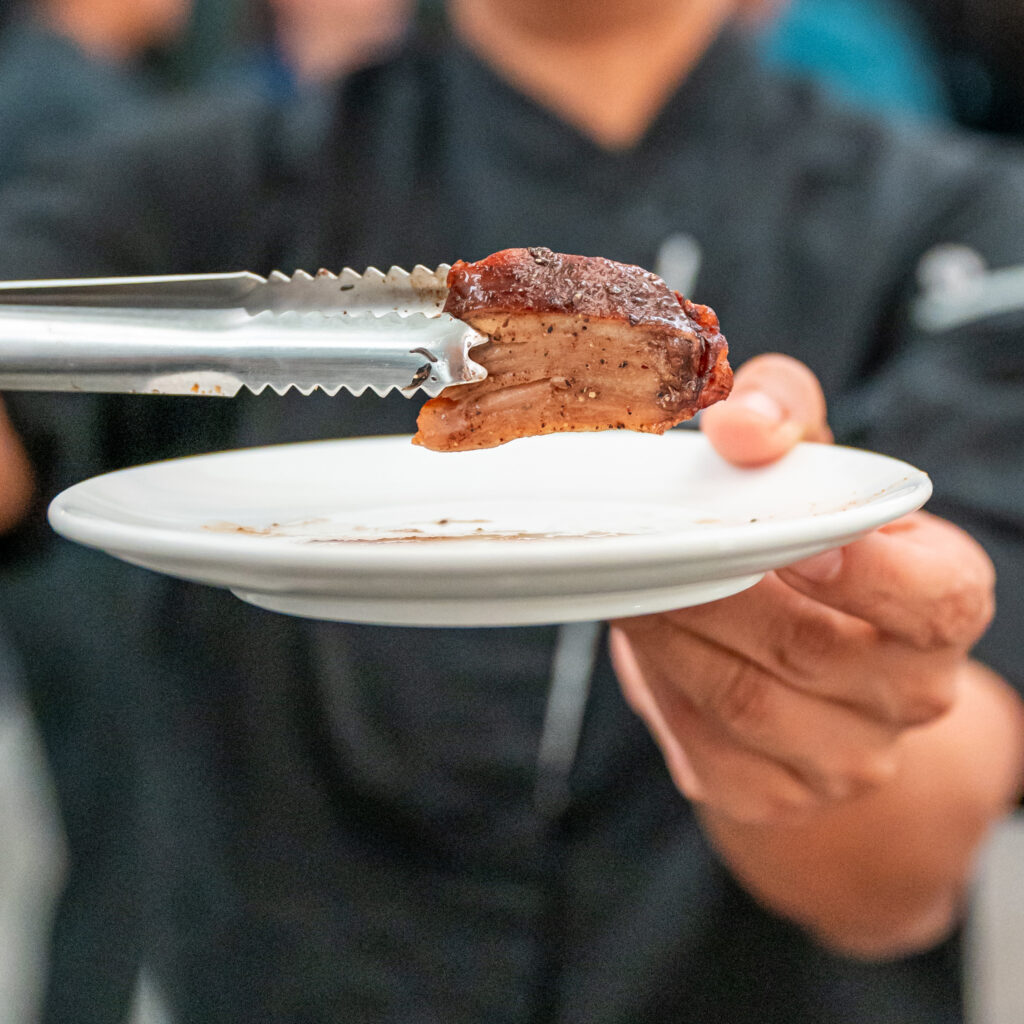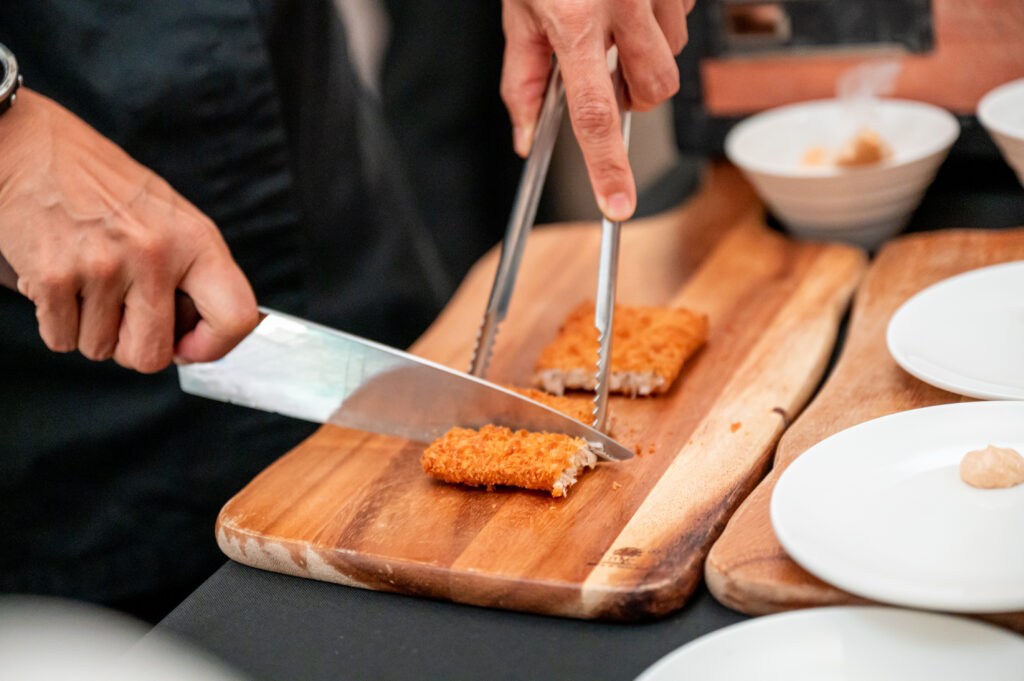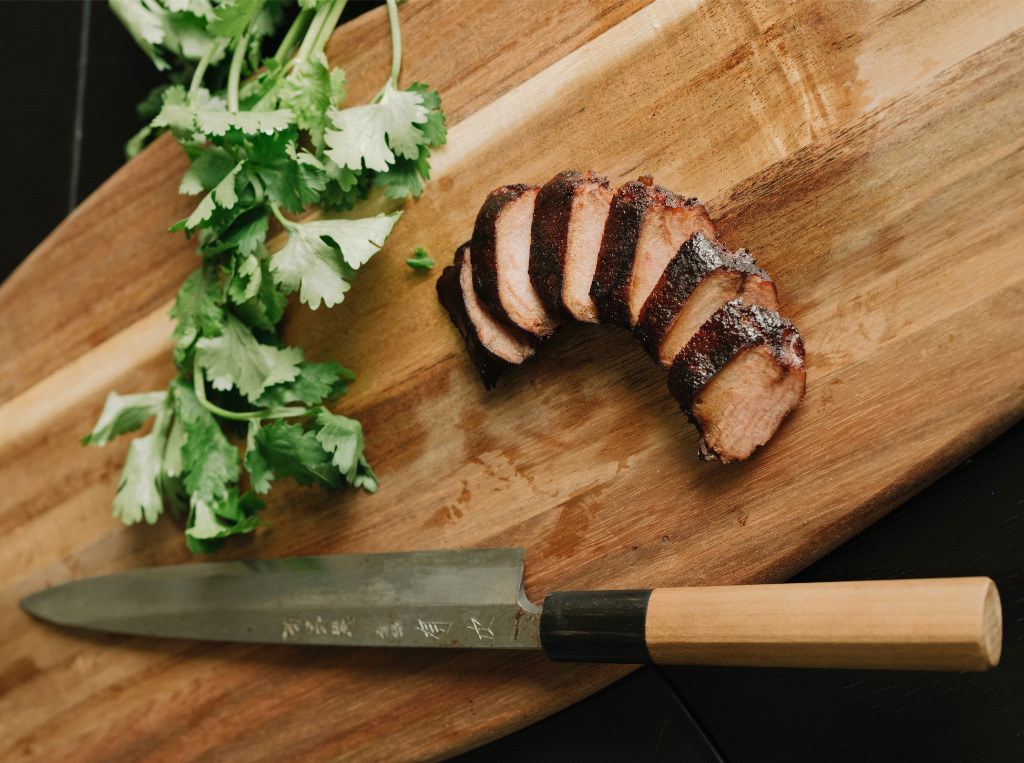Meatiply Rakes in $3.75M in Initial Seed Funding for Expansion and New Facility in 2024
7 Mins Read
Singaporean cultivated meat company Meatiply has closed the first round of its seed funding, securing $3.75M in financing to scale up production of its hybrid products and facilitate its new R&D facility, set to open next year.
A second close is scheduled for Q1 2024, with the producer developing natural compounds to target the functional foods market.
Singapore-based cultured meat producer Meatiply has closed an initial seed funding round with $3.75M in investment, which will help it scale up production and facilitate the opening of its new plant next year. It brings its total raised to $4.75M, after a $1M pre-seed round in early 2022.
The round was co-led by co-led by existing investor Wavemaker Partners and AgFunder, with participation from Seeds Capital, the VC arm of Enterprise Singapore.
“While the challenge of meeting product launch deadlines persists for many companies, the Meatiply team has demonstrated the ability to achieve meaningful results within shorter timeframes and with considerably less funding,” said Paul Santos, managing partner at Wavemaker Partners. “Their achievements in developing hybrid structured poultry prototypes have particularly impressed us.”
He added: “We have confidence in the diverse backgrounds and technical skills of Meatiply’s founders, coupled with their unique technology, which positions them on a viable path to commercial success.”
A new facility in the works

The new funds will allow Meatiply to ramp up its R&D capabilities and production for more extensive co-development with commercial partners. A new facility will become operational next year, two years ahead of its targeted 2026 launch. Speaking to Green Queen, Meatiply CEO Elwin Tan explained: “We are building a dedicated R&D facility with small-scale production capabilities to generate more cell mass to support safety testing and product development.”
He did not disclose exact capacity numbers, but offered: “The new facility will allow us to expand the effort on bioprocess development, from the current scale in small, lab-scale suspension cultures, to eventually arrive [at] large bench-top bioreactors.”
The company was founded in 2021 by Tan, Jason Chua, Benjamin Chua (the three studied stem cell biology at the National University of Singapore), and Teh Bin Tean. In October 2022, Meatiply unveiled three structured meat prototypes – kampong chicken yakitori, chicken katsu bites, and Asia’s first smoked duck breast – in a combination of cell- and plant-based ingredients.
Tan confirmed that the first products won’t be any of these prototypes. “We aimed to showcase the level of complexity and comprehensiveness that our team can deliver, and aims to deliver these products in the long term,” he said. “Until then, we have strategically devised a product development roadmap that will allow us to rapidly commercialise new product formats, without running into the same challenges that companies before us have faced. The team is hard at work refining these new prototypes and we plan to unveil them next year.”
Cultivated meat as functional food

These prototypes – made from multiple cell types including muscle, fat and skin – were structured, rather than minced, which enables them to be used in a broader range of products. Meatiply’s “scientifically grounded” approach allows it to generate natural compounds responsible for the sensory and nutritional quality of meat, and targeting these health benefits means the company can focus its energy on the $280B functional foods market.
Jason Chua, the chief scientific officer, said: “Besides meat, we are also positioned for opportunities to commercialise in the nutraceutical and wellness market.” Tan added: “Meatiply’s strong upstream capabilities to create complex and functional products… not only justifies the use of animal cells, but also results in significant cost reductions.”
Speaking to Green Queen, the CEO explained: “Our radical development strategy and selected product formats will allow us to significantly reduce capex and input costs. With this same strategy, we can reasonably target commercialisation faster than any other company has been able to achieve.”
“We’re highly impressed by what the Meatiply team has achieved in a short amount of time and with relatively limited external funding,” noted John Friedman, AgFunder’s Asia director. “We firmly believe there is a place for cultivated meat technology in our future food system, and are encouraged by Meatiply’s practical approach towards product development and go-to-market strategy.”
“Meatiply has distinguished itself through strong technical competencies which have allowed it to develop a wide repertoire of structured meat and meat derivatives focusing on the Asian palette. Despite being a young company, it was able to showcase three structured meat prototypes, including Asia’s first cultivated smoked duck breast, within 18 months. With a global market poised to embrace sustainable protein alternatives, we look forward to supporting Meatiply as it leverages Singapore’s position as a strategic AgriFood innovation hub for the region to scale and grow,” added Kaixin Tan, General Manager of SEEDS Capital.
Regulatory filing in 2025, with launch planned the year after

The Meatiply team attributes its success to its team of experts as well as the thriving food tech ecosystem in Singapore. “We are incredibly fortunate to be based in Singapore, where the numerous research and development grants, coupled with the presence of brilliant and purpose-driven individuals within the scientific and start-up ecosystems, have enabled us to establish a strong second-mover trajectory,” said Bin Tean.
The company has previously said establishing its base in Singapore was “an easy decision” for multiple reasons. Apart from the innovation support, this included the country’s 30 by 30 food security initiative, which aims to reduce the island state’s reliance on imports by producing 30% of all food consumed by its residents by 2030, as well as its progressive government and regulatory framework. It became the first country in the world to approve the sale of cell-cultured meat in 2020, granting clearance to California-based Eat Just‘s Good Meat.
Meatiply, which is aiming to submit an application to Singapore’s regulatory body by the end of 2025, says it is a “frontrunner” in product development in this space, with innovations across the cultivated meat value chain, helping it develop functional hybrid meat products. Tan confirmed that the company is aiming to launch in Singapore first, but is “keeping an eye on the regulatory developments in South Korea, Japan, and China for the potential to subsequently enter those markets”.
“Meatiply believes in maximising the potential of each cell type,” said Jason Chua. “Our focus on the production of complex value-added compounds using cells will allow us to create cultivated meat products with added health benefits. This strategic entry point will give consumers more reasons to embrace cultivated technologies.”
Tan added: “We are focusing on nutritive compounds that are abundant in animals but are either absent or in lower concentrations in plant products. This will not only mean that the products we co-develop will have a clear nutritional edge over plant-based, but at the same time, we’ll also be the best choice for a source of cultivated cells if a plant-based partner is looking to develop a hybrid product,” he said.
Can hybrid meat go the distance?

Hybrid meat is still a nascent category, and investors are divided over its potential. Some, though, argue that it’s the best way for cultivated meat to overcome its current cost and scale challenges. Companies like SciFi Foods – which has raised $40M so far – are examples of initial success. China’s CellX recently announced a move into hybrid proteins with mycelium fermentation and Dutch company Meatable’s first product – anticipated to launch in Singapore next year – is a plant-cultivated pork hybrid.
“During the development of the prototypes we unveiled last year, we explored a number of plant-based raw materials and built the prototypes from scratch, instead of assimilating our cells with an existing plant-based product,” explained Tan. “In doing so, we developed over 10 prototypes with different combinations of plant protein sources. In other words, our development team has the necessary knowledge and expertise to work with a variety of plant proteins. The eventual types of plant proteins we incorporate into our products will depend on the needs and demands of our co-development partners.”
A second close of Meatiply’s seed funding round is set to take place in Q1 2024. “Despite a more cautious investment approach this year, investors were excited by our development strategy,” said Tan. “Likewise, we are thrilled that our investors share our vision.”
It has indeed been a slow year for alt-protein and food tech funding – especially compared to the last few years. Cultivated meat has seen investment fall off a cliff – according to alt-protein think tank the Good Food Institute, the sector reeled in nearly $900M in funding in 2022 (versus $1.2B for plant-based and $842M for fermented proteins). But this year, the first half of 2023 saw only $99M of financing go to cultivated meat (compared to $124M for plant-based and $273M for fermentation).
But there have been a few success stories. Meatable raised $35M, while US producer BlueNalu brought in $33.5M. Israel’s Wanda Fish closed $7M in seed funding, while CellX and Jimi Biotech (both Chinese) reeled in $6.5M and $3M, respectively. And just this week, Chicago-based Clever Carnivore completed a $7M oversubscribed seed round. You can add Meatiply to this list.




